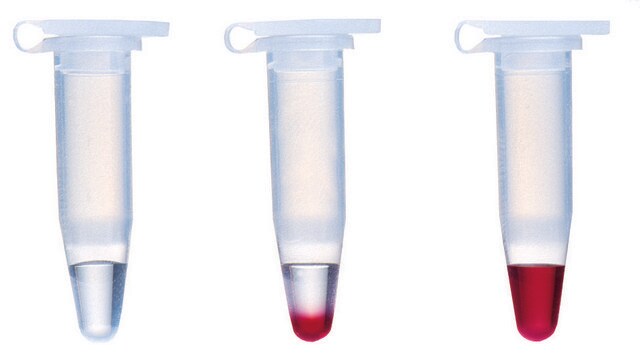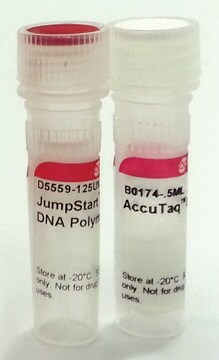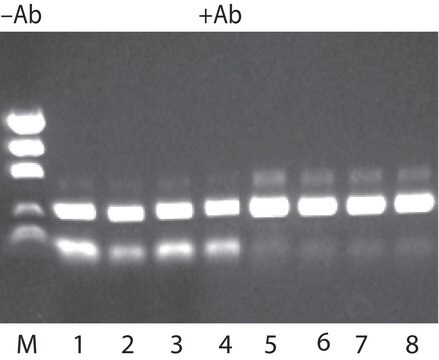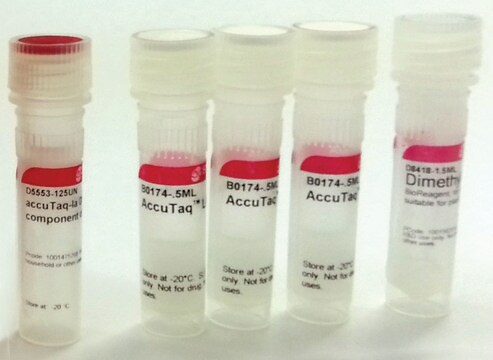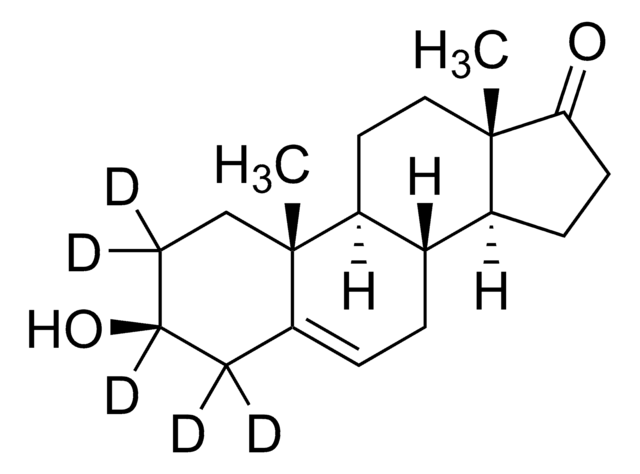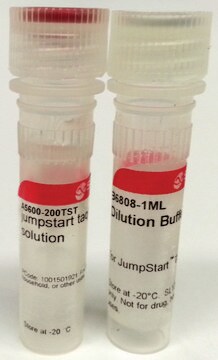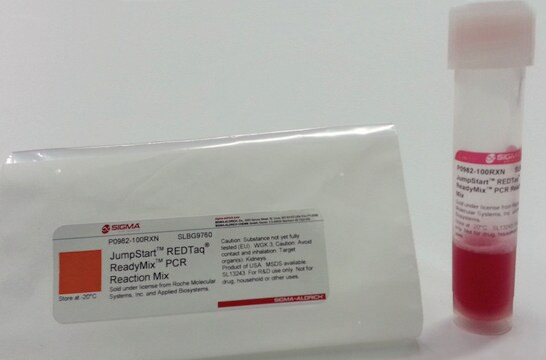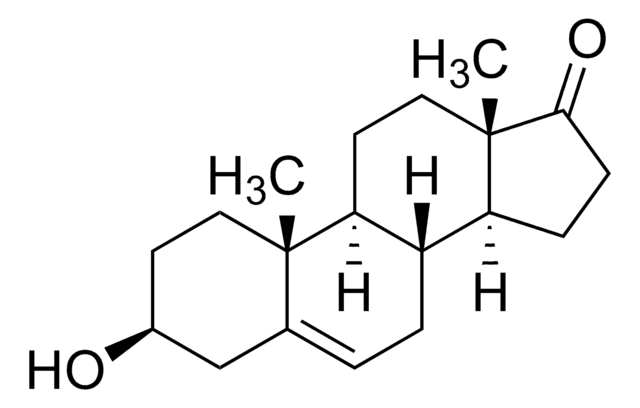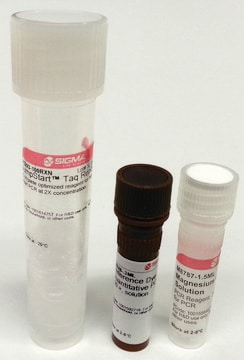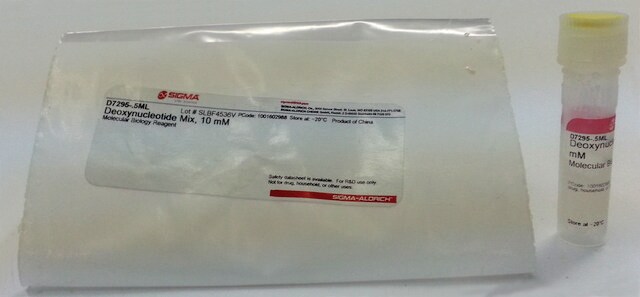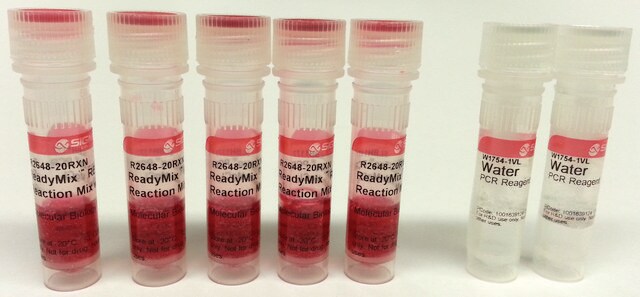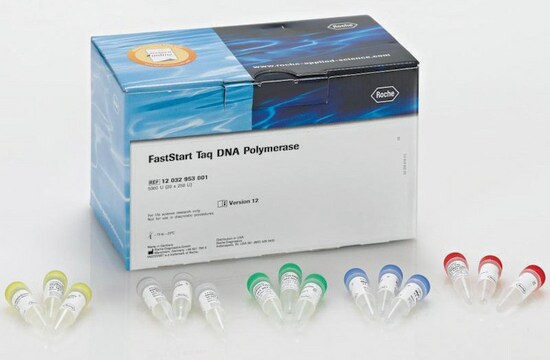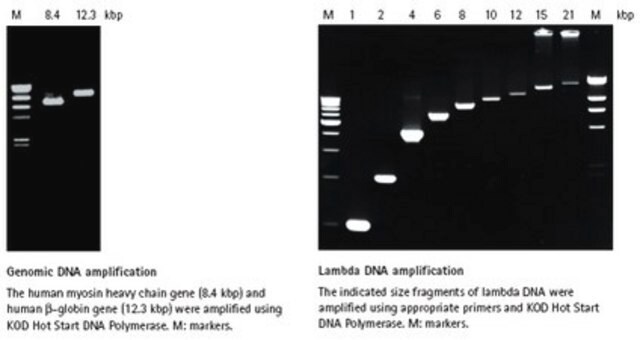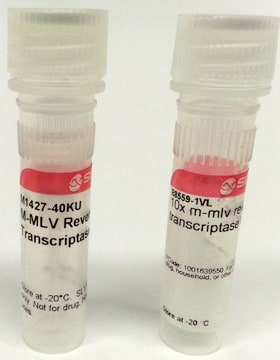D1313
JumpStart™ REDAccuTaq® LA DNA Polymerase
Long and accurate hot-start Taq with inert dye, 10X buffer included
Synonym(s):
High fidelity Taq, Hot start DNA polymerase, Hot start Taq, Long Taq
About This Item
Recommended Products
Quality Level
form
liquid
usage
sufficient for 250 reactions
sufficient for 50 reactions
feature
Long & Accurate PCR
dNTPs included: no
hotstart
concentration
1 unit/μL
technique(s)
PCR: suitable
color
red
input
purified DNA
suitability
suitable for PCR
application(s)
agriculture
shipped in
wet ice
storage temp.
−20°C
General description
Application
JumpStart REDAccuTaq LA DNA Polymerase also contains the hot start mechanism of the JumpStart Taq antibody. JumpStart Taq antibody is designed to minimize non-specific amplification while increasing target yield. Unlike other hot-start methods (i.e. chemical inactivation), JumpStart Taq antibody does not require a pre-incubation step prior to cycling because polymerase activity is fully restored during the first denaturation cycle of the PCR reaction.
The inert red dye provides quick recognition and confirmation of appropriate mixing. An aliquot of the samples (5-10 μL) may be loaded directly onto an agarose gel following PCR. The red dye migrates slightly faster than bromophenol blue at the same rate as a 125 base pair fragment.
The PCR product can be easily separated from the dye by standard purification methods. The inert red dye has does not effect automated sequencing, restriction enzyme digestion, ligation or other downstream applications.
Features and Benefits
- JumpStart REDAccuTaq LA DNA polymerase, an antibody inactivated hot start enzyme, is designed to minimize non-specific amplification while increasing target yield & specificity
- Up to 6.5X greater fidelity in comparison to Taq DNA polymerase making it the ideal enzyme for multiplex PCR
- Produce amplicons up to 22 kb with genomic templates and up to 40 kb with less complex templates such as lambda or bacterial genomic DNA
- Reduce set-up time and eliminate concerns associated with manual or wax Hot Start methods
- Dye allows for quick visual confirmation that reagent has been added and mixed properly
- Direct loading onto an agarose gel without additional dyes
Packaging
Unit Definition
Other Notes
Legal Information
related product
Hazard Statements
Precautionary Statements
Hazard Classifications
Aquatic Chronic 3
Storage Class Code
10 - Combustible liquids
Flash Point(F)
Not applicable
Flash Point(C)
Not applicable
Choose from one of the most recent versions:
Already Own This Product?
Find documentation for the products that you have recently purchased in the Document Library.
Customers Also Viewed
Articles
Long and accurate PCR applications address the needs for longer read lengths, greater fidelity and higher yields than that which can be achieved with Taq DNA polymerase.
The purpose of Hot Start PCR is to inhibit the PCR reaction in order to reduce nonspecific amplification, prevent the formation of primer dimers, and increase product yields.
Protocols
Reviews the applications and benefits for RedTaq, including standard RedTaq, Hot Start RedTaq and RedTaq for genomic DNA PCR.
Protocol for high fidelity amplification of long PCR fragments up to 22kb from complex DNA mixtures and up to 40kb from simple DNA mixtures.
Our team of scientists has experience in all areas of research including Life Science, Material Science, Chemical Synthesis, Chromatography, Analytical and many others.
Contact Technical Service